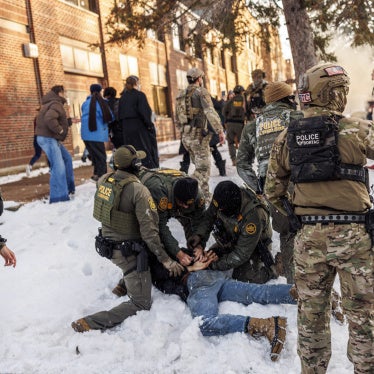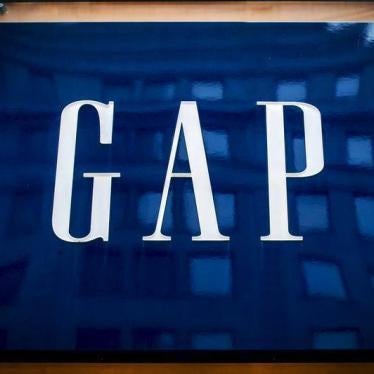The law establishing the Iraqi war crimes tribunal lacks essential elements to ensure legitimate and credible trials for perpetrators of genocide, war crimes and crimes against humanity, Human Rights Watch said. The Iraqi Governing Council yesterday issued a law creating a tribunal to try serious past crimes.
“Iraqis rightly insist that trials for past atrocities are of the utmost importance,” said Richard Dicker, director of the International Justice Program at Human Rights Watch. “But any tribunal set up to try these crimes should be fair and effective. Justice must be done and be seen to be done.”
Human Rights Watch welcomes the provision of the law that allows for the possibility of appointing non-Iraqi trial and appeals chamber judges with experience in trying serious human rights crimes if the Iraqi Governing Council deems it necessary. The law also includes some important protections for the rights of the accused and applies definitions of international crimes largely consistent with international standards, Human Rights Watch said.
At the same time, key provisions are lacking to ensure credible and legitimate trials, Human Rights Watch said. The law does not require that judges and prosecutors have experience working on complex criminal cases and cases involving serious human rights crimes. Nor does the law permit the appointment of non-Iraqi prosecutors or investigative judges, even if they have relevant experience investigating and prosecuting serious human rights crimes.
“Up until now, the most complex trials in Iraq have lasted no more than a few days,” said Dicker. “The law should require that international judges with expertise trying serious human rights crimes sit on the bench alongside Iraqis. This would assist, not replace, Iraqi judges in ensuring justice for the horrific crimes committed.”
Human Rights Watch is also concerned that the law does not prohibit the death penalty or trials in absentia, and does not ensure that guilt must be proven beyond a reasonable doubt. In addition, the law does not sufficiently address protection of witnesses and victims or security for the tribunal and its staff.
“Allowing the death penalty and trials in absentia sends a message,” said Dicker. “The tribunal might be seen as a court of revenge, not justice.”
The Iraqi Governing Council issued the tribunal law without providing any opportunity for transparent consultation or public comment. The drafting should have been transparent to help ensure an effective and fair accountability process, Human Rights Watch said.
Human Rights Watch had recommended that a Group of Experts including Iraqi and international specialists be created to suggest appropriate accountability mechanisms and facilitate collection and preservation of evidence. A mixed Group of Experts would have allowed Iraqi jurists to leverage accumulated international experience in trying serious human rights crimes, Human Rights Watch said.
Human Rights Watch over the years has engaged in extensive work to document human rights violations in Iraq and press for justice for these crimes. Human Rights Watch played a particularly active role in documenting crimes committed as part of the Iraqi government’s genocidal Anfal campaign against the Kurds in 1988. In 1992, Human Rights Watch obtained and analyzed 18 metric tons of Iraqi state documents. In 1994 and 1995, Human Rights Watch urged states to bring a case against Iraq for genocide against the Kurds before the International Court of Justice.
Human Rights Watch is preparing a detailed analysis of the tribunal law.






